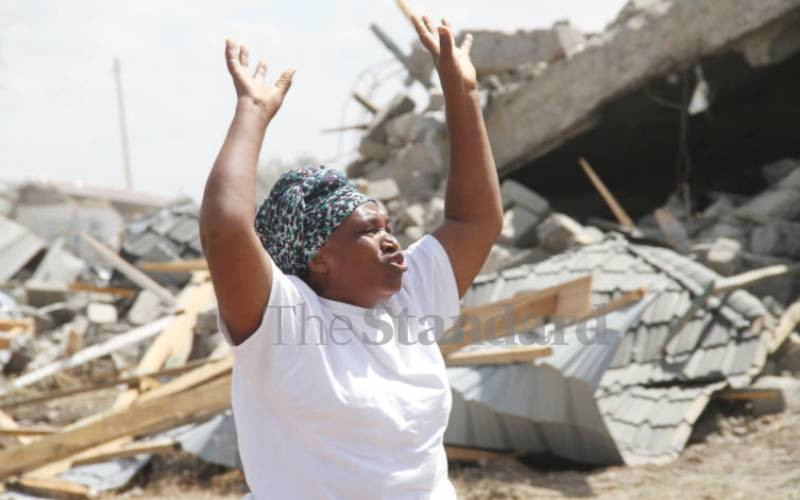×
The Standard e-Paper
Fearless, Trusted News

In a country where homelessness is widespread, it should matter a whole lot when those with homes are rendered homeless.
It is one thing to limp because you tripped and fell, and it is another to walk with a limp because a person intentionally pushed you. It is one thing to be homeless - it is another to be rendered homeless.